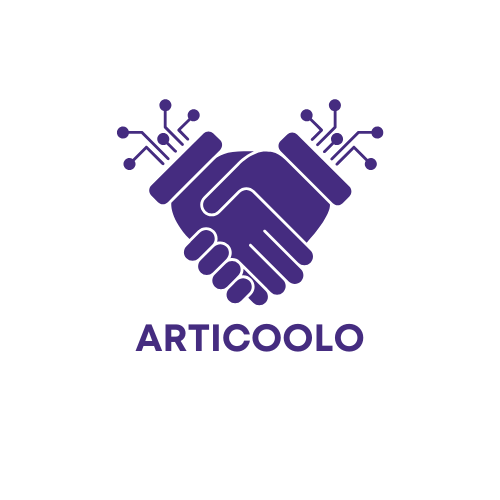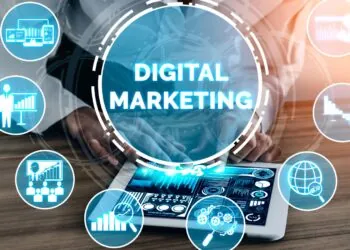In a world where robots can write better puns than your uncle at Thanksgiving, the future of content marketing is getting a serious upgrade. As artificial intelligence continues to evolve, marketers are faced with the challenge of adapting to an AI-driven landscape that’s changing faster than you can say “SEO.”
But don’t worry; it’s not all doom and gloom. Embracing AI can lead to smarter strategies and more personalized content that resonates with audiences like never before. Think of it as teaming up with a super-smart sidekick who never sleeps and always has the latest trends at their fingertips. As the digital landscape shifts, those who prepare now will not just survive but thrive in this brave new world of content marketing.
The Future of Content Marketing: Preparing for an AI-Driven World
Artificial intelligence significantly reshapes content marketing strategies. Automation allows for streamlined processes, enabling marketers to focus on creativity and innovation. Advanced algorithms analyze vast amounts of data, offering insights into audience behaviors and preferences. Personalization becomes more precise, enhancing user engagement and satisfaction.
Data-driven decision-making remains crucial in this AI-driven landscape. Marketers use analytics tools that identify trends, guiding content creation that resonates with target audiences. As AI technologies evolve, incorporating machine learning into content strategies yields even more effective outcomes.
Content generation tools simplify the production of high-quality material. These tools assist in creating everything from blog posts to social media updates, ensuring consistent messaging across platforms. Video content gains traction as AI optimizes video recommendations and enhances user experience through interactive elements.
Collaboration between human creativity and AI capabilities creates a unique content synergy. Marketers who embrace this partnership innovate more effectively and adapt to rapid changes in consumer preferences. Understanding the ethical implications of AI will also play a vital role in shaping content practices. Transparency and authenticity foster trust among audiences, essential in a crowded digital landscape.
Marketers need to prioritize continuous learning and skill development. Staying abreast of emerging AI technologies and trends ensures competitive advantage. By preparing for these changes, businesses position themselves for success in a future where AI drives content marketing efforts.
Understanding audience expectations and behaviors now involves leveraging AI tools. Integration of AI into marketing strategies not only enhances performance but also informs long-term planning. This future requires marketers to pivot and embrace technology, ensuring they thrive amid evolving consumer dynamics.
The Rise of AI in Content Marketing
The impact of artificial intelligence on content marketing continues to grow, shaping how brands communicate with their audiences. Marketers embrace AI to enhance efficiency and effectiveness.
Understanding AI Technologies
Artificial intelligence technologies encompass machine learning, natural language processing, and predictive analytics. These technologies analyze vast amounts of data, revealing insights about consumer behavior. Machine learning algorithms identify patterns that inform content strategies and drive engagement. Natural language processing allows for the creation of content that resonates with audiences while addressing their preferences. Predictive analytics forecasts trends, guiding marketers in decision-making and strategy development.
AI Tools Changing the Landscape
Several AI tools revolutionize content marketing practices. Content generation platforms like Jasper and Copy.ai streamline the drafting process, producing high-quality material quickly. Automation tools such as HubSpot and Marketo enable personalized campaigns, ensuring messages reach target audiences effectively. Additionally, insights from analytics tools like Google Analytics and BuzzSumo enhance understanding of audience engagement. Video optimization tools such as Magisto and Animoto create compelling visual content tailored to viewer preferences, boosting interaction and retention.
Impact of AI on Content Creation
AI significantly transforms the landscape of content creation, influencing efficiency and creativity across the marketing spectrum.
Automating Content Generation
Automation simplifies content generation by utilizing AI tools that draft, edit, and optimize writing. Platforms like Jasper and Copy.ai enable marketers to produce high-quality material quickly, reducing the time spent on initial drafts. These tools utilize natural language processing, ensuring content aligns with brand voice. Consistency in messaging across various platforms improves as AI maintains style and tone. Marketers can focus more on strategic planning while AI handles repetitive tasks. Moreover, automation allows for scaling content production without sacrificing quality, meeting the increasing demand for fresh material.
Enhancing Personalization
Personalization enhances audience engagement through AI’s ability to analyze data and predict preferences. Marketers leverage analytics tools like Google Analytics and BuzzSumo to gauge audience behaviors, guiding content strategies effectively. Tailored content resonates well with users, fostering a deeper connection between brands and customers. AI-driven insights enable the customization of messaging based on demographic and behavioral data. By delivering relevant content, businesses improve user experience and retention rates. Enhanced personalization creates opportunities for targeted campaigns, ensuring that brands reach the right audience with the right message at the optimal time.
Strategies for Adapting to AI Innovations
Adapting to AI innovations necessitates a proactive approach. Marketers must embrace advanced tools to enhance their strategies.
Embracing AI-Driven Tools
AI-driven tools transform content marketing by streamlining processes and enhancing efficiency. Platforms like Jasper and Copy.ai simplify content generation, enabling quicker drafting and editing. Automation tools such as HubSpot and Marketo empower personalized campaigns, allowing marketers to tailor messages effectively. Google’s analytics tools provide insights that optimize audience engagement further. By integrating these tools into their strategies, marketers gain the capability to produce high-quality content consistently, meeting the growing demand while remaining relevant.
Focusing on Human Creativity
Human creativity remains vital in an AI-dominated landscape. Innovative ideas and authentic storytelling differentiate brands in the market. While AI offers data-driven insights, crafting a compelling narrative requires emotional intelligence and unique perspectives. Marketers should blend both elements, ensuring technological advancements enhance rather than overshadow creative processes. Continuous collaboration between creative teams and AI tools can spur innovative content that resonates deeply with audiences. Prioritizing creativity alongside AI-driven solutions fosters a dynamic approach to content marketing that captures attention and builds lasting connections.
Challenges and Considerations
Adapting to AI’s influence on content marketing involves various challenges. Marketers must consider ethical implications, authenticity, and the integration of automation into their strategies.
Ethical Implications of AI in Marketing
AI raises important ethical questions in marketing practices. Transparency remains crucial, as consumers value honesty regarding data usage. Respecting privacy ensures that marketers build trust, fostering deeper relationships with audiences. Authenticity in messaging also matters; brands should avoid relying solely on automated content to connect with users. Violating ethical standards can undermine engagement efforts, making it essential for marketers to balance innovation with responsibility.
Balancing Automation and Authenticity
Successful content marketing requires a delicate balance between automation and authenticity. Automation streamlines content production, enabling marketers to meet high demand efficiently. However, automated content must reflect a genuine brand voice to resonate with audiences. Creatively crafted messages drawn from AI insights can enhance engagement while maintaining authenticity. Prioritizing human input allows brands to inject personality into their messaging. Striking this balance ensures that automated processes complement rather than replace meaningful connections with users.
Conclusion
The future of content marketing is undeniably intertwined with AI advancements. As marketers embrace these technologies they’re not just adapting but thriving in a rapidly changing environment. By leveraging AI’s capabilities for automation and personalization they can create more impactful connections with their audiences.
Staying ahead requires a commitment to continuous learning and ethical practices. Balancing automation with authenticity will be key to maintaining trust and engagement. As AI continues to evolve marketers who harness these tools effectively will lead the way in delivering compelling and relevant content that resonates with consumers.














Discussion about this post